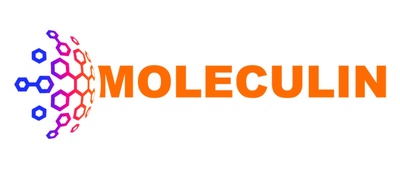Moleculin Biotech, Inc., (Nasdaq: MBRX) (“Moleculin” or the “Company”), a clinical stage pharmaceutical company with a broad portfolio of drug candidates targeting highly resistant tumors and viruses, today announced that preclinical data of Annamycin tested in syngeneic models of metastatic colorectal cancer established in lungs or liver was accepted for poster presentation at the American Association for Cancer Research (AACR) Annual Meeting 2022.
| Annamycin exhibited robust antitumor activity in experimental colorectal cancer liver and lung metastasis models Results support advancement of preclinical development toward initiating clinical studies in metastatic colorectal cancer patients HOUSTON, April 8, 2022 /PRNewswire/ -- Moleculin Biotech, Inc., (Nasdaq: MBRX) (“Moleculin” or the “Company”), a clinical stage pharmaceutical company with a broad portfolio of drug candidates targeting highly resistant tumors and viruses, today announced that preclinical data of Annamycin tested in syngeneic models of metastatic colorectal cancer established in lungs or liver was accepted for poster presentation at the American Association for Cancer Research (AACR) Annual Meeting 2022, being held April 8-13, 2022, in New Orleans, Louisiana. Details of the poster presentation are as follows: Title: New approach to target metastatic colorectal cancer organotropism with L-Annamycin The objective of this study was to assess the efficacy of Annamycin in experimental colorectal cancer liver and lung metastasis models. The efficacy of Annamycin was tested in syngeneic models of metastatic colorectal cancer established in lungs or liver. For lung metastasis model, CT26-Luc cells were injected intravenously (IV) into Balb/c mice, followed by weekly IV treatment of Annamycin (4 and 6 mg/kg). The liver metastatic model was established using intrasplenic injection protocol. Mice received six weekly IV injections of 4 mg/kg of Annamycin or vehicle. Bioluminescent imaging (BLI), Magnetic Resonance Imaging (MRI) or Computer Tomography (CT) were used to track tumor progression. Annamycin exhibited robust antitumor activity in both models. In the lung metastasis model, a dose-dependent delay in the tumor progression was visualized by both BLI and CT scan in the Annamycin treated group. The delay correlated with 272% extension of survival in the group receiving 6 mg/kg Annamycin [median survival (MS) 79d for treated vs 29d vehicle, p<0.0001] and 234% for the animals dosed with Annamycin at 4 mg/kg [MS 68d, p=0.0012]. In the liver metastasis model, all vehicle-treated mice showed massive tumors in the liver and peritoneal cavity as monitored by BLI and MRI. In the vehicle group, 13/14 died or were euthanized by 35d (median survival was 34.5d). Yet, no tumors were detected by BLI or MRI in Annamycin treated mice as of 44d and 0/14 mice died (100% survival). This indicates a highly significant (P< 0.0001) extension of survival (ongoing experiment). “We continue to be encouraged by the growing body of robust preclinical and human clinical data demonstrated by Annamycin. The positive results seen in these preclinical models provide added confidence in the potential follow-on development opportunities we believe Annamycin holds. While metastatic colorectal cancer is not an immediate area of focus for us, this data set continues to provide valuable insight as we advance its clinical development for the treatment of highly resistant tumors,” commented Walter Klemp, Chairman and CEO of Moleculin. In summary, the strategy to develop anticancer agents that imitate metastatic colorectal cancer organotropism appears to be highly promising and is supported by these results. This study demonstrating efficacy of Annamycin in colorectal cancer models provides convincing evidence for further preclinical development aimed at initiation of clinical studies in metastatic colorectal cancer patients. Annamycin is the Company’s next-generation anthracycline that has been shown in animal models to accumulate in the lungs at up to 30-fold the level of doxorubicin, as well as demonstrating the ability to avoid the multidrug resistance mechanisms that typically limit the efficacy of doxorubicin and other currently prescribed anthracyclines. Importantly, Annamycin has also demonstrated a lack of cardiotoxicity in multiple human clinical trials, including ongoing trials for the treatment of relapsed or refractory acute myeloid leukemia (AML) and soft tissue sarcoma (STS) lung metastases, and the Company believes that the use of Annamycin may not face the same usage limitations imposed on doxorubicin, one of the most common currently prescribed anthracyclines. Annamycin is currently in development for the treatment of AML and STS lung metastases and the Company believes it may have the potential to treat a number of additional indications. Annamycin currently has Fast Track Status and Orphan Drug Designation from the U.S. Food and Drug Administration (FDA) for the treatment of STS lung metastases, in addition to Orphan Drug Designation for the treatment of relapsed or refractory acute myeloid leukemia. For more information about the Phase 1b/2 study evaluating Annamycin for the treatment of STS lung metastases, please visit clinicaltrials.gov and reference identifier NCT04887298. About Moleculin Biotech, Inc. Moleculin Biotech, Inc. is a clinical stage pharmaceutical company focused on the development of a broad portfolio of drug candidates for the treatment of highly resistant tumors and viruses. The Company’s lead program, Annamycin is a next-generation anthracycline designed to avoid multidrug resistance mechanisms with little to no cardiotoxicity. Annamycin is currently in development for the treatment of relapsed or refractory acute myeloid leukemia (AML) and soft tissue sarcoma (STS) lung metastases. Additionally, the Company is developing WP1066, an Immune/Transcription Modulator capable of inhibiting p-STAT3 and other oncogenic transcription factors while also stimulating a natural immune response, targeting brain tumors, pancreatic and other cancers, and WP1220, an analog to WP1066, for the topical treatment of cutaneous T-cell lymphoma. Moleculin is also engaged in the development of a portfolio of antimetabolites, including WP1122 for the potential treatment of COVID-19 and other viruses, as well as cancer indications including brain tumors, pancreatic and other cancers. For more information about the Company, please visit www.moleculin.com and connect on Twitter, LinkedIn and Facebook. Forward-Looking Statements Some of the statements in this release are forward-looking statements within the meaning of Section 27A of the Securities Act of 1933, Section 21E of the Securities Exchange Act of 1934 and the Private Securities Litigation Reform Act of 1995, which involve risks and uncertainties. Forward-looking statements in this press release include, without limitation, whether the results described in the poster will be shown in follow on preclinical and clinical development and whether the Company will be able to develop Annamycin to treat additional indications . Although Moleculin believes that the expectations reflected in such forward-looking statements are reasonable as of the date made, expectations may prove to have been materially different from the results expressed or implied by such forward-looking statements. Moleculin has attempted to identify forward-looking statements by terminology including ''believes,’' ''estimates,’' ''anticipates,’' ''expects,’' ''plans,’' ''projects,’' ''intends,’' ''potential,’' ''may,’' ''could,’' ''might,’' ''will,’' ''should,’' ''approximately’’ or other words that convey uncertainty of future events or outcomes to identify these forward-looking statements. These statements are only predictions and involve known and unknown risks, uncertainties, and other factors, including those discussed under Item 1A. “Risk Factors” in our most recently filed Form 10-K filed with the Securities and Exchange Commission (“SEC”) and updated from time to time in our Form 10-Q filings and in our other public filings with the SEC. Any forward-looking statements contained in this release speak only as of its date. We undertake no obligation to update any forward-looking statements contained in this release to reflect events or circumstances occurring after its date or to reflect the occurrence of unanticipated events. Investor Contact: JTC Team, LLC
SOURCE Moleculin Biotech, Inc. | ||
Company Codes: NASDAQ-SMALL:MBRX |




